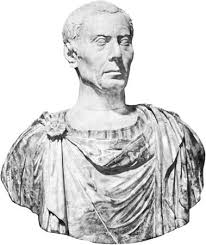(a) IN GENERAL- That the President is authorized to use all necessary and appropriate force against those nations, organizations, or persons he determines planned, authorized, committed, or aided the terrorist attacks that occurred on September 11, 2001, or harbored such organizations or persons, in order to prevent any future acts of international terrorism against the United States by such nations, organizations or persons. Rather vague and amorphous, of course, but try to remember that we didn't know much, one week after the 9/11 attacks, about what had happened, other than the basic facts. 19 young Arab men had boarded American planes, hijacked them, flew three of them into buildings and one into the ground. Not one of them was from Afghanistan; Afghanistan, indeed, is not Arab, but it is Muslim. Be that as it may, and returning to our foundational document: the President is authorized to use force against "those nations, organizations, or persons" involved in the 9/11 attacks. The disjunctive phrase states "or harbored such organizations or persons." What is the subject or antecedent of this phrase? It must be "nations" in order to avoid what is somethimes called the "Russian doll" fallacy in legal construction; otherwise we're talking about "organizations or persons" harboring organizations or persons, which while technically possible, is probably not what Congress had in mind. If there are two possible interpretations of Congressional action, and one involves simple stupidity, that's where to put your money. But let's just say that the President was authorized to use military force against any nation, organization or person involved in 9/11 or involved in harboring people who were involved in carrying out the attacks. That's broad enough, I think, and it gives the President and Congress the benefit of every doubt. How does this relate to what's going on in Afghanistan right now? The original idea was that the government of Mullah Omar and his Taliban gang provided a sanctuary for Osama bin Laden near Kandahar; bin Laden was the brains and money behind 9/11, and his fearsome array of jungle gyms and Gymboree tunnels were critical in training the hijackers to overpower the unarmed flight crews and gain access to the unlocked cockpits that fateful day. Everyone now concedes that (a) the Taliban are no longer in power, (b) Mullah Omar was dethroned, and in fact may have been killed by an October, 2008, drone missile attack, and (c) bin Laden fled Afghanistan. So Afghanistan still technically exists, of course, but now under the government of the Mayor of Kabul, Hamid Karzai, former Unocal consultant and dapper headpiece wearer. Afghanistan was the "nation," but as presently constituted, it had nothing to do with 9/11, nor in harboring those who attacked or planned. Are there any "organizations or persons" in Afghanistan in Column A (active planning or execution of 9/11) or Column B (harboring)? That would presumably be al Qaeda. They don't wear badges or uniforms, so how will we know when we get to the end of al Qaeda in Afghanistan? And are the al Qaeda in Afghanistan "persons" who were actually involved in 9/11, or involved in "harboring" those who were? How do we know that? And what is the technical or operative distinction between al Qaeda that we might find in Afghanistan and al Qaeda we might find in, say, Saudi Arabia? Why war in one place but not in the other? As I say, an interesting academic question Professor Levinson has posed. Congress won't touch it because the whole idea of the "war on terror" is to keep it as vague and amorphous as possible, the better to use it as a funding mechanism for the Pentagon and as a means of concentrating power in the Presidency. The one thing we can know for certain is that it certainly doesn't have to make any sense. That's now how they do things on Capitol Hill.
Sandy Levinon, a professor of law at the University of Texas who writes very interesting stuff on the legal blog Balkinization, poses a provocative question which I have not seen elsewhere asked: does our most recently installed Constitutional Dictator, Barack Obama, actually have the power to escalate the war in Afghanistan without seeking some further auhorization from Congress? By "Dictator" I mean no disrespect; Caesar, after all, was a dictator yet much beloved by his Roman subjects. The "Fifth Republic" style of governance which has taken hold in the United States yields up most of its power to the Executive. Thus, most people don't even notice anymore that the War Power, strictly speaking, is vested in the Congress, not the President.
It is fitting that the question was asked by an academic because the question, and answer, if there is one, are also academic. No one in the Congress is going to challenge the planned increase of 17,000 troops in Afghanistan, there will be no Congressional debate, any request for money to fund the escalation will be hurriedly and gladly given -- in short, it's a done deal. But just for the sake of tracking where we've been and where we're going, it's at least intellectually interesting to see how it all happened.
So that original Authorization, passed in a heated rush on September 18, 2001 stated as follows:
Section 2 - Authorization For Use of United States Armed Forces
The video embedded below, along with the draft script and supporting links,
can be freely viewed on the Nature Bats Last Substack account. Comments are
ena...
4 days ago


No comments:
Post a Comment